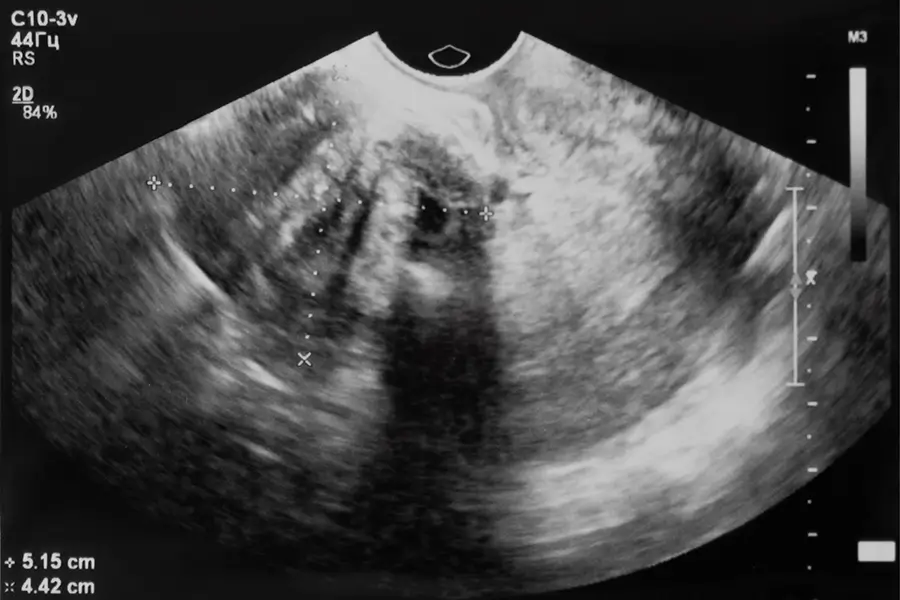What is considered an extremely large fibroid?
Fibroids, noncancerous growths that develop in the uterus, come in various sizes. While many fibroids are small and inconspicuous, some can grow to become extremely large, causing significant health issues and discomfort. In this article, we’ll explore what is considered an extremely large fibroid and the potential consequences associated with their size.

Understanding Fibroid Sizes
Fibroids, also known as uterine leiomyomas or myomas, can range in size from as small as a seed to as large as a melon. Medical professionals typically classify fibroid sizes into three categories:
Small Fibroids: Small fibroids are generally less than 3 centimeters (about 1.2 inches) in diameter and often go unnoticed as they rarely cause noticeable symptoms.
Medium-Sized Fibroids: Medium-sized fibroids range from 3 to 6 centimeters (about 1.2 to 2.4 inches) in diameter and may cause mild to moderate symptoms, depending on their location and number.
Large Fibroids: Large fibroids are those that exceed 6 centimeters (2.4 inches) in diameter and can lead to significant symptoms and complications.
Signs and Symptoms of Large Fibroids
As fibroids increase in size, they can produce various symptoms and complications, which may include:
Heavy Menstrual Bleeding: Large fibroids can lead to excessive menstrual bleeding, prolonged periods, and the need for frequent changes of sanitary products.
Pelvic Pain and Pressure: The size and weight of large fibroids can cause pelvic pain, discomfort, and a feeling of fullness or pressure in the lower abdomen.
Pelvic Pain During Intercourse: Sexual intercourse may become painful or uncomfortable due to the pressure exerted by large fibroids on the pelvic region.
Frequent Urination: Large fibroids can compress the bladder, leading to increased urination frequency or a constant urge to urinate.
Constipation or Difficulty with Bowel Movements: When fibroids press against the rectum, it can result in constipation or difficulty with bowel movements.
Backache or Leg Pains: Large fibroids may cause backache or radiating leg pain, particularly if they press on nearby nerves.
Enlarged Abdomen: Depending on their size and number, large fibroids can cause the uterus to become significantly enlarged, leading to abdominal distention and a noticeable increase in waistline circumference.
Consequences of Extremely Large Fibroids
The term “extremely large” is subjective and may vary depending on individual circumstances and healthcare providers’ assessments. Generally, fibroids that exceed 10 centimeters (approximately 4 inches) in diameter are often considered to be extremely large. However, what matters most is not just the size but the impact they have on a woman’s health and quality of life.
Extremely large fibroids can have several consequences, including:
Severe Symptoms: Larger fibroids are more likely to cause severe symptoms such as heavy bleeding, intense pain, and significant discomfort.
Fertility Issues: In some cases, extremely large fibroids may interfere with fertility by blocking the fallopian tubes or disrupting the uterine cavity.
Complications During Pregnancy and Delivery: Pregnant women with extremely large fibroids may experience complications, including a higher risk of miscarriage, preterm birth, or the need for a cesarean section.
Pressure on Nearby Organs: Large fibroids can compress adjacent organs, leading to urinary or gastrointestinal problems.
Reduced Quality of Life: The impact of extremely large fibroids on daily life can be substantial, affecting a woman’s physical, emotional, and social well-being.
Seeking Medical Evaluation
If you suspect you have extremely large fibroids or are experiencing symptoms associated with larger fibroids, it’s essential to seek medical evaluation and consultation with a healthcare provider or specialist. They can assess the size and location of the fibroids, discuss available treatment options, and recommend an individualized plan to address your specific needs and improve your quality of life.
Contact Preferred Fibroid for Expert Guidance
If you have concerns about fibroids, their size, or the associated symptoms, don’t hesitate to reach out to Preferred Fibroid. Our team of experts specializes in fibroid diagnosis and treatment, offering personalized solutions to help you regain your health and well-being. Contact us today to schedule a consultation and take the first step towards a healthier, fibroid-free life.
